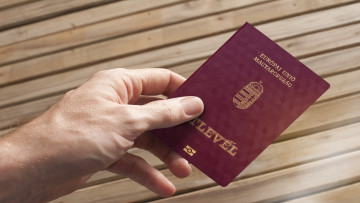I am studying in the third year of the State University of Economics and Technology.I specialize in contractual, economic and corporate law, in particular, I provide consultations and write articles.
During the period of martial law in Ukraine, conscripted citizens can receive various types of summons from the Territorial Centers of Recruitment and Social Support (TCC and SP).The most common type of summons is a summons to update or clarify personal data. This is necessary to check the status of citizens' records and update information. If a citizen does not appear before the TCC and JV according to the summons at the specified time, this may lead to administrative liability. According to the legislation of Ukraine, such a violation entails a fine. Article 210-1 of the Code of Ukraine on Administrative Offenses provides for a fine for ignoring a summons. It is worth noting that more serious measures, including criminal liability, may be applied in case of repeated ignoring of summonses or evasion of mobilization.
Question
What types of subpoenas are established by law?
Answer
Summons for clarification of personal data - this summons is issued to update information about a person (place of residence, state of health, marital status, place of work or study). It is important to appear on time for this summons to update the data. Summons for passing a military medical commission (MMC) - this type of summons requires a mandatory medical examination to assess the health of a conscript. According to the results of the VLK, it is determined whether a citizen is suitable for military service. For conscription - this type of summons is usually issued for conscription. However, in the conditions of general mobilization in Ukraine, these summonses are currently not issued. Summons for dispatch (mobilization order). If, after passing the VLK, a person is found fit for service, they can be given a summons for mobilization to be sent to a military unit.
It is possible to appeal a fine for failure to appear on a summons if there are grounds to believe that the fine was imposed illegally or if there were objective reasons for failure to appear. For this, it is important to follow certain legal requirements and procedures:
Grounds for appealing the fine:
- Inconsistency of the subpoena details. All subpoenas must contain mandatory details defined by law. Among them: the seal of the TCC and SP and the signature of the head, a unique registration number, fully filled-in personal data of a conscripted citizen (there should be no blank forms), the type of summons and the exact date, time and place where it is necessary to appear.
- The procedure for serving a summons. The summons must be delivered personally and confirmed by the citizen's signature. If the summons was delivered in another way, for example, left in a mailbox without a personal signature, this violates the requirements of the law and may be grounds for appealing the fine.
- Missing the appeal deadline. The decision on the imposition of an administrative penalty can be appealed within 10 days from the moment of its issuance (Article 289 of the Code of Ukraine on Administrative Offenses). If this period was missed, it is necessary to apply to the court with a request to renew the period for appeal, especially if the citizen did not know about the date or place of hearing of the case.
- Presence of valid reasons for non-appearance. Good reasons can exempt from responsibility for failure to appear on a summons.
Question
What is a valid reason for failure to appear on a summons?
Answer
Death of close relatives (parents, spouse, children, brother, sister, etc.). Illness confirmed by medical documents (especially if the person was hospitalized). Natural disasters (floods, earthquakes, etc.) that prevent timely arrival. Being under investigation or subject to administrative or criminal liability. Other circumstances that the court may deem relevant.
The appeal of a fine imposed by the TCC (Territorial Center for Procurement and Social Support) is conducted within the framework of administrative proceedings according to the general rules of administrative law. The procedure for appealing a fine in an administrative court is described below:
- Preparation of an administrative lawsuit: The first step is to prepare an administrative lawsuit before the court. The plaintiff (a citizen who appeals a fine) must prepare a statement of claim in which he sets out the circumstances of the case and demands for the annulment of the resolution on the imposition of an administrative penalty.
- The lawsuit must include: the name of the court to which the lawsuit is filed, information about the plaintiff (name, address, contacts), information about the defendant (TCC and SP that issued the resolution), a description of the disputed resolution (number, date, essence of the fine). substantiation of the illegality of the imposed fine (for example, improper delivery of the summons, lack of requisites, presence of good reasons for non-appearance, etc.), demand for cancellation of the decision on imposing a fine, appendices to the lawsuit (evidence, copy of the decision, copy of the summons, medical certificates or other documents).
- Deadlines for filing a claim: A claim to the administrative court must be filed within 10 days from the moment of receipt or delivery of the decision on the imposition of a fine. If this deadline is missed due to objective reasons (for example, the plaintiff was not informed about the resolution or did not know about it), an application for renewal of the appeal deadline can be submitted together with the lawsuit.
- Filing a statement of claim: A statement of claim can be filed: in person at the office of the administrative court, by mail (by registered letter with a notice of delivery), through the court's electronic system, if this option is available.
- Trial: After accepting the claim, the court will set a date for the trial. The court will consider the claim, analyzing all the submitted evidence and arguments of the parties. At the court hearing, the plaintiff (or his representative) must present his evidence and justify why the fine was imposed unlawfully.
Appealing a fine from the TCC within the framework of administrative proceedings involves filing a lawsuit within 10 days after receiving the decision on the fine. In the lawsuit, it is important to provide all evidence of the illegality of imposing a fine or the presence of good reasons for non-appearance. If the deadlines are missed, it is possible to renew the deadline for filing a claim, subject to proper justification.
Lawyer help when appealing a fine:
Legal services when appealing a fine imposed by the Territorial Center for Recruitment and Social Support (TCC and SP) can be useful for the correct and effective protection of the rights of a conscript. Here are the main types of legal services in such cases:
Lawyer consultation and legal analysis of the situation: The lawyers online provides initial advice on the legality of the fine and the possibility of appealing it. Assessment of the legality of service of the summons and other procedural actions by the TCC. Clarification of the rights and responsibilities of a citizen, as well as analysis of available documents (summons, decrees on fines, medical certificates, etc.).
Lawyer services in the preparation of documents: Verification of compliance of the subpoena with legal requirements (availability of all necessary details, proper service, correctness of registration). Assessment of procedural violations by the TCC and SP (for example, improper notification or violation of the rights of a conscript). Determining valid reasons for non-appearance on a summons, such as illness, death of close relatives or other circumstances that may be recognized by the court. The lawyer prepares and draws up a statement of claim to the administrative court with a detailed justification of the illegality of the imposed fine.
Court proceedings: Services of a lawyer representing the client's interests in the administrative court during the trial. Protecting the client's rights at court hearings, including preparing arguments, speaking in court and answering the judge's questions. Working with counterarguments of the TCC and SP during the case review. If the first decision of the court is unfavorable, the lawyer can prepare an appeal to the administrative appeals court. Legal assistance at the stage of the appellate review of the case.
An appeal of a fine imposed by the territorial collection centers (TCC) for failure to appear on a summons is legitimate and can be successfully carried out if certain conditions are met. The lawyer advice can significantly increase the chances of successfully challenging the fine and protecting the rights of the conscript.




































